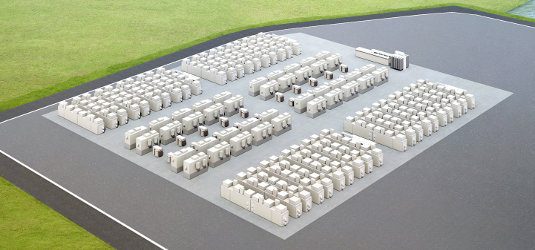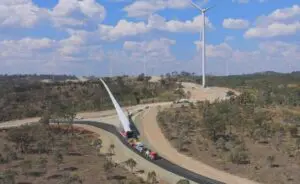A decision on a rule change that could have a critical impact on the future of battery storage in Australia has been delayed again by the country’s main energy market rule maker, apparently because of the complexity and potential impact of the decision.
The Australian Energy Market Commission has been wrestling with a proposal to change the settlement period for wholesale market prices from 30-minutes to 5 minutes, to align with the current dispatch period.
Proponents, such as the Queensland zinc producer Sun Metals, argues that the current arrangements distorts the market, allows for what is called “re-bidding”, or effectively gaming the market, and that ends up costing consumers more.
The issue has been identified as one of the major targets for reform in the Australia energy markets. The rule change is supported not just by battery storage companies, but also many independent analysts, and groups such as the Clean Energy Fiannce Corporation and the Australian Renewable Energy Agency, who argued that it was one of the critical decisions needed to be made to support the roll-out of more renewable energy in Australia.
However, the fossil fuel industry has been strongly opposed, arguing that the changes would be costly and could force some gas generation out of the market, just at a time when more gas generation is considered necessary to keep the system in balance.
A preliminary discussion paper issued by AEMC staff late last year, indicated there was little doubt that “economic theory” would support the alignment of bidding and settlement period, and noted that the US regulator has instructed all its markets to do just that.
But it also warns about the “potential costs” and other adverse outcomes, and said it wants to be sure that the benefits outweighed the costs. It is these considerations that appear to be behind the decision to delay a draft decision until July 6, with a final decision now not likely until September.
The 5-minute rule change was a key focus of recent hearings from the Senate inquiry into the resilience of the energy market, with both CEFC chief executive Oliver Yates and ARENA boss Ivor Frischknecht – along with others – speaking strongly in favour of it.
“Five-minute interval pricing, from our own analysis on battery projects, would change the revenue profile significantly and would then encourage batteries to come into the market and be available for short-term supply,” Yates said.
Battery storage, its proponents argue, will not just compete with gas generators as a competitive source of peaking power, and as a cheaper alternative to network upgrades, but also provide the rapid response, grid security that could prevent blackouts.
These arrays could be set up as large free standing installations, in smaller units across the network, adjoining wind and solar farms, or even gas plants, or installed in homes and businesses and linked together through software as a “virtual power plant.”
“This is exactly what you want: a very fast response,” Yates said. “Unfortunately, clouds come over solar systems, and that will change their generation. That is a different development, so you need a responsive asset in the market to be able to respond to that.”
The ANU’s Evan Franklin agreed, telling the same hearing: “Using a 30-minute settlement period is a disincentive for resources which can act in the best interests of the system for one minute or five minutes or 10 minutes.”
He said the current 30-minute settlement does not encourage enough fast-response technology into the grid – the sort that could perhaps have averted the state-wide blackout in South Australia last September when tornadoes tore down three major transmission lines in a matter of minutes.
“One of the aspects of resilience that I talked about in the submission is that dynamic system response which is something that occurs over a matter of seconds. That requires some different incentives or maybe even different markets to be in place.”
His colleague, Matthew Stocks, also said he was a strong supporter of the change in settlement times.
“One of the things that are happening, particularly with storage, is that people will be able to respond faster—we are talking seconds for batteries and less than a minute for pumped hydro,” he said.
“If storage is going to come into that, if you really want it to develop that very fast instantaneous response.’
“It needs to be rewarded for filling in that gap and not end up being paid six times less than what that was deemed to be worth because whoever supplies in that six-minute period only gets about $2,000 a megawatt hour rather than the $14,000 that they bid.”
AEMC head John Pierce told the same hearing that such changes were a “fundamental issue for the structure of the market”, but he did not indicate which way the rule maker was likely to fall. It is the AEMC commissioners that make the decision, not the staff.











